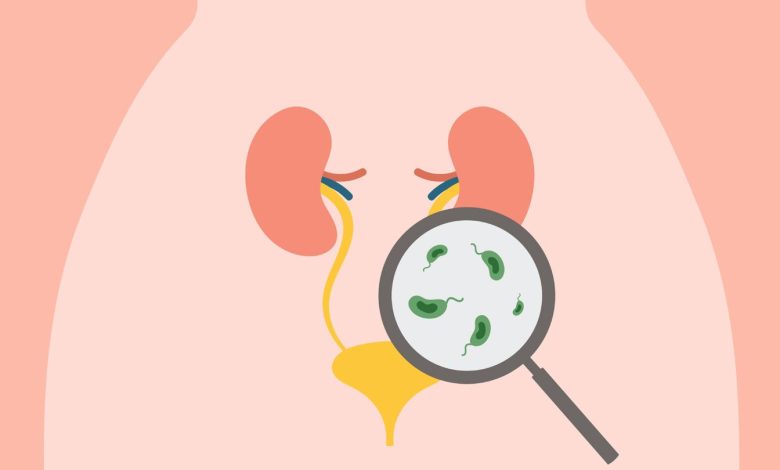Experts: Not every fever is UTI, avoid random medications

MWANZA: RECENTLY in Mwanza City, a free two-day urinary tract screening event stirred up controversy. The headline worry? Do people really get Urinary Tract Infection (UTIs) just from sharing latrine pits?
The reply is no, they don’t, unless the latrines are downright germ havens. At the screening, organised by the regional office, health experts from the Tanzania Association of Urological Surgeons (TAUS) were quick to clear the air (and perhaps clean up a few misunderstandings).
Professor Chalonde Yongolo as TAUS’s top urology guru, made it crystal clear: “You can share a latrine pit with the entire staff of an institution and none of you will get a urinary tract infection, so long as basic hygiene is maintained.” And with that, myths began to fall faster than poorly chosen pants.
According to Prof Yongolo, UTIs start when bacteria normally hanging around outside the body sneak into the bladder.
“Our normal flora are harmless, until they get lost inside,” he explained, painting a picture of tiny, uninvited bladder squatters causing irritation. Ladies, he noted, must be vigilant.
Due to anatomy (and proximity to the pit), even the cleanest latrine can be risky if personal hygiene is skipped after a rally to the “restroom” and urine residues linger.
Those leftovers become a buffet line for bacteria looking for a meal. Men, don’t get off the hook. If you are relying on the “shakeand-go” routine after peeing, Prof Yongolo warned, you are also in bacterial danger zone.
ALSO READ: MOI serves 77,000 patients in four months
Letting urine droplets stay behind creates a prime bacterial breeding site and even in allmale bathrooms. Then came a Prostate Specific Antigen (PSA) you didn’t know you needed: don’t selfdiagnose UTIs and buy antibiotics willy-nilly. Without proper screening or medical advice, people are risking more than just a sore bladder, they are fuelling drug resistance and inviting a parade of new health issues.
Why? Because fevers and urine-related symptoms might actually signal bladder cancer, kidney stones, or other serious conditions. And unless you get screened correctly, you might be stuffing your body with the wrong meds for the wrong problem. The result? Drugs wipe out good bacteria in your gut, leading to diarrhoea, stomach aches and possible liver or kidney damage. In the long run, what started as a “simple UTI” can spiral into multi-system misery.
To prevent this, Prof Yongolo issued a rallying cry for government-supervised lab inspections to stamp out fake test kits and wrong results from care providers who can’t tell a pipette from a percussion hammer.
Stepping up to back the message, Dr Gabriel Mtaturu, TAUS Chief Secretary, said: “If your usual clinic only says ‘UTI’ every time you visit, go get a second (or third) opinion.” He pointed out that symptoms like frequent peeing, bladder irritation, pain, abdominal aches, bloody pee, leaking, or fever can hide bigger issues like prostate enlargement or even prostate cancer. Here’s how it can go sideways: men with an enlarged prostate might struggle to fully empty their bladder. That leftover pee hangs around, mimicking UTI symptoms.
If untreated, the infection can sail upstream to the kidneys. And guess what? A misdiagnosis means the wrong pills, wasted time, bigger bills and even risk of impaired vision if side effects escalate.
ALSO READ:Health sector staffing set for scale-up
During the two-day event, attendees like Mr Oswald Wenslaus happily lined up for free checks but also had a few requests: first, make it a quarterly gig. Second, expand the services. “Urine health is great,” he said with a grin, “but let’s get blood pressure, HIV, malaria, dental, eye and… hey, how about mosquito net checks?” Wish granted? So, what’s the takeaway? Sharing latrine pits is not a UTI ticket so long as the facilities are not cesspits in disguise.
Here, personal and environmental hygiene is still king and that is clean surfaces regularly; wash your hands; wipe thoroughly; don’t rely on shake-and-go; avoid antibiotic fashion trends get proper tests.
UTIs could be a masquerade ball for bigger issues. Again, ask more than one doctor if your “UTI” keeps returning and government oversight is needed for lab tests fake diagnostics hurt patients and public health.
Free-health-screening events should run quarterly and cover a broader range of issues apparently, everyone wants a health carnival. As a lighthearted recap, latrine-sharing is fine… unless the latrine is actually a horror show.
Again, don’t think “it’s just a UTI” could be a bigger bug or worse. Men, shake responsibly urine splash backs are risky business and women, hit that restroom hygiene like it’s going out of style. Mark you, drugs don’t solve everything, but tests do. See a doctor if symptoms return after finishing the antibiotic: it could be resistant bacteria or something else entirely.
Here, the Mwanza urine tract screening taught everyone a valuable lesson: don’t panic over shared toilets just keep everything clean, screen wisely and take meds seriously.
A shared latrine doesn’t equal UTI doom, but dirty habits just might. And hey, maybe next screening season they’ll add malaria, dental and eye checks. Because one event is fun, two is health practically a festival!
Shared latrines don’t cause UTIs lack of cleanliness does. Good hygiene stops bacteria from entering the bladder. Misdiagnosis and self-medicating are dangerous and costly. Use proper labs, double-check diagnoses and ask for a wider health screening next time!





